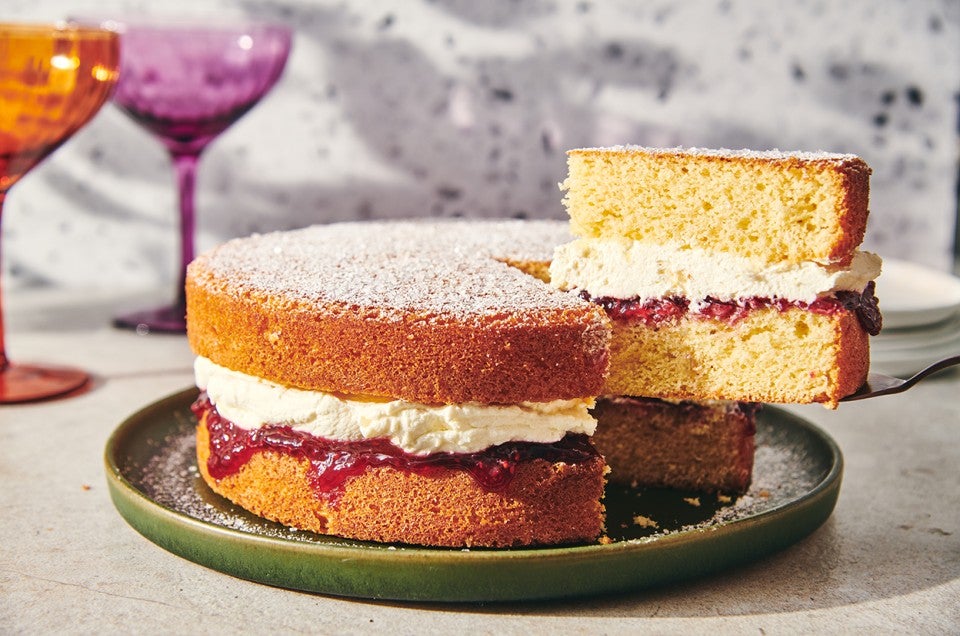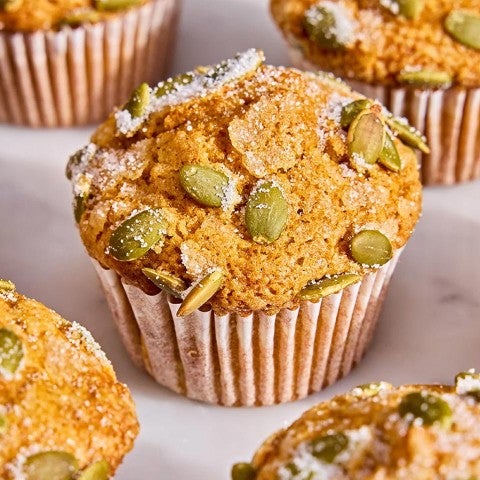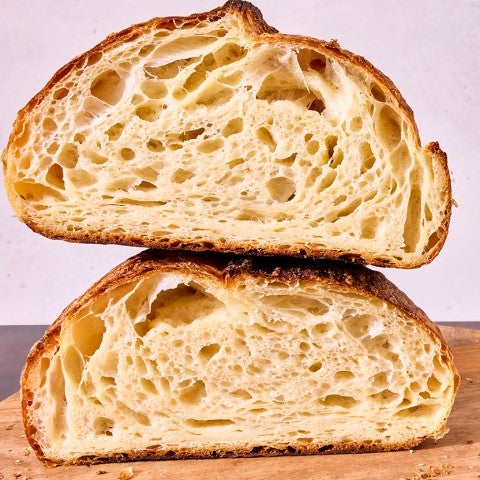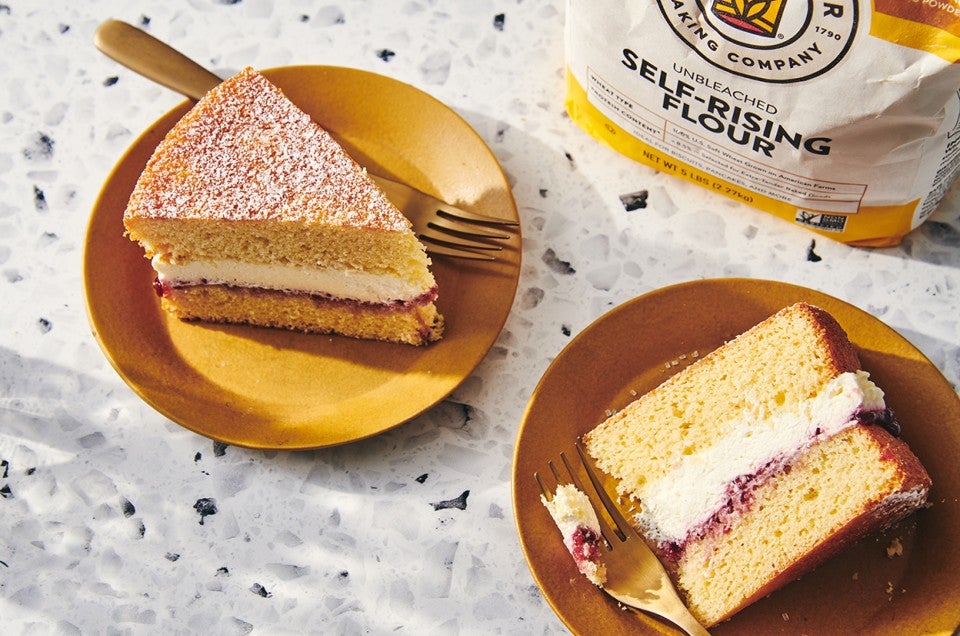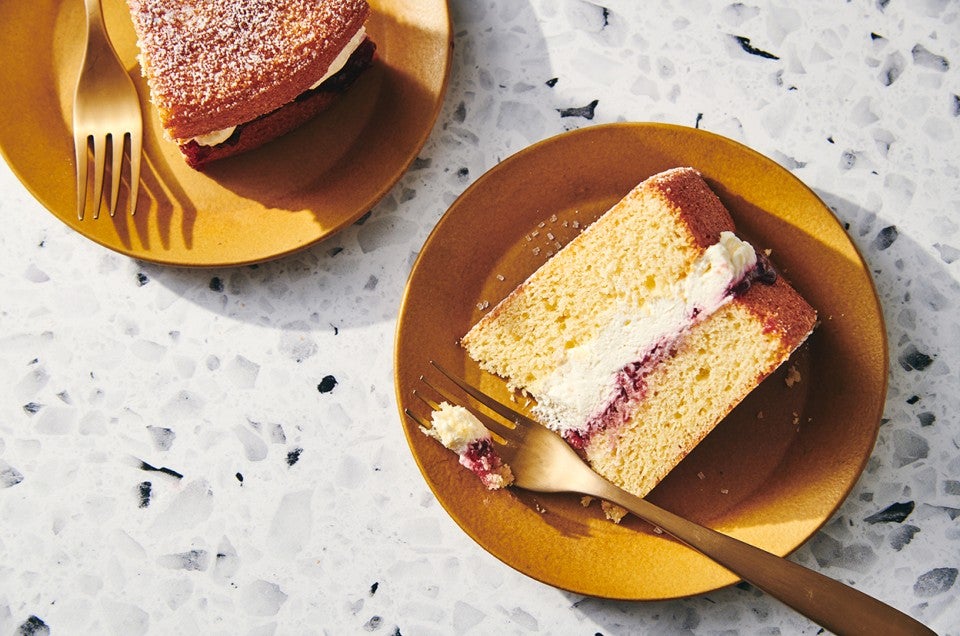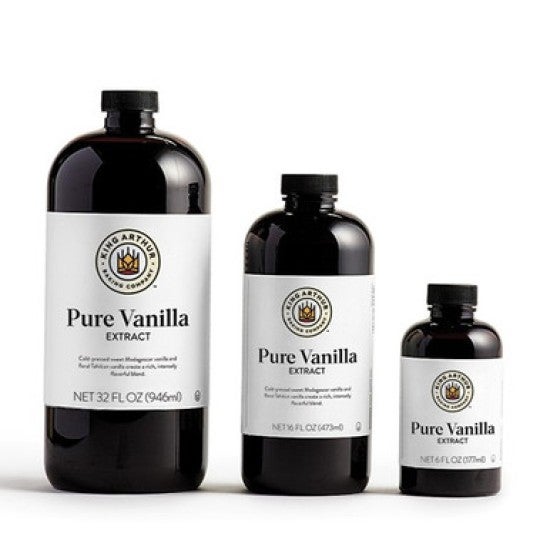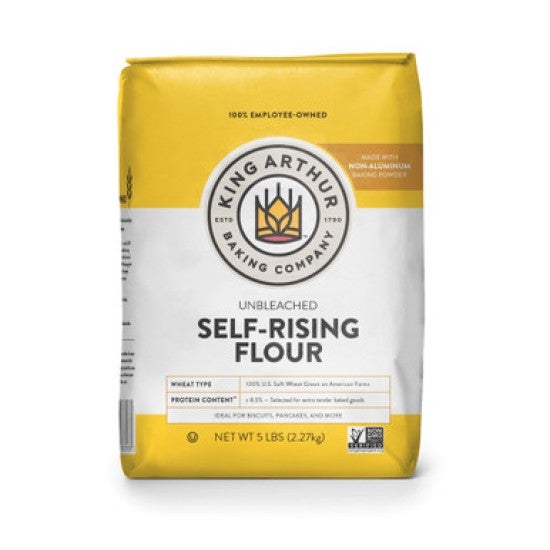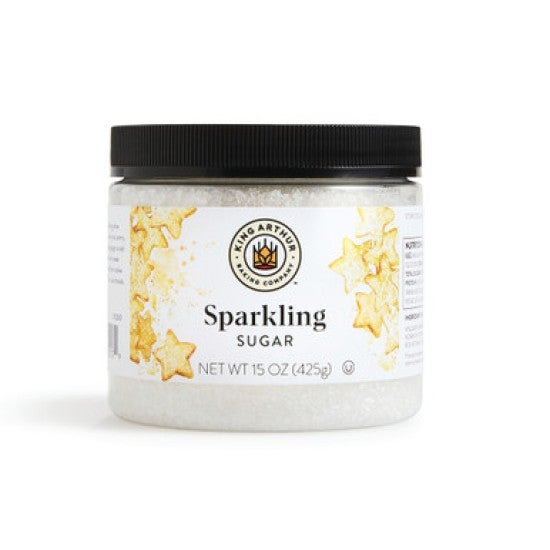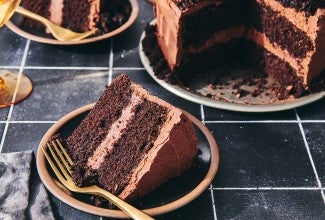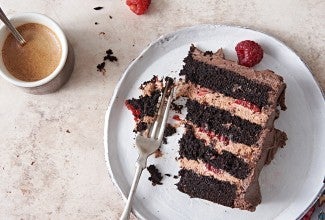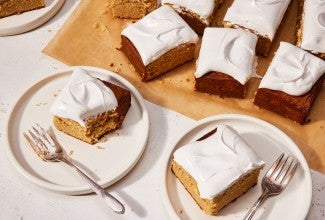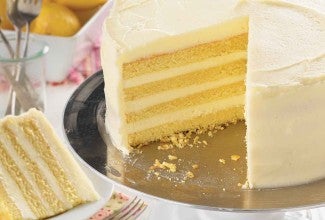Victoria Cake
The Victoria Sandwich (named after Queen Victoria), a.k.a. Victoria Cake, was originally shaped in a long loaf, filled, and cut into fingers or "sandwiches." From the time of its royal debut, it has become the quintessential round cake, and it seems like every English baker has it in their repertoire. A small cake meant for tea rather than elaborate celebrations, Victoria Cake is made with "self-raising flour," meaning it's an everyday kind of cake to make. You'll find almost this exact recipe for Victoria Sandwich or Sponge in every British baking book.
